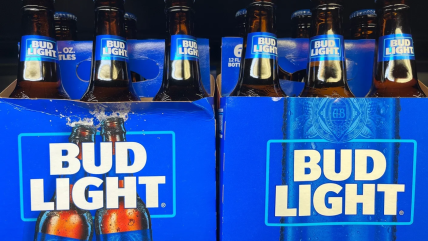
Anheuser-Busch InBev (AB InBev) is still set to see the effects of its Bud Light controversy from last year going into 2024, according to the CEO.
Michel Doukeris, chief executive of the US brewing giant, told analysts during a full-year earnings call today (29 February) the group will continue to see growth slowly come back quarter-by-quarter after the Dylan Mulvaney controversy last April.
He said: “As a matter of fact, even within this year, we will see quarters that will be different because quarter one will be still lapping a little bit of the US Bud Light situation, and therefore we should expect growth building up as we go from quarter one to quarter two and quarter three. So, there’ll be progress there.”
Doukeris went on to say that the recovery of the Bud Light brand has not been at “the fast pace that we were expecting or that we’ve been working for”.
However, he added: “What we lost is on Bud Light and we’ve recovered across the portfolio.”
In the group’s fourth quarter, revenue declined by 17% in the US, due to the decline of Bud Light. EBITDA dropped by 34%.

US Tariffs are shifting - will you react or anticipate?
Don’t let policy changes catch you off guard. Stay proactive with real-time data and expert analysis.
By GlobalDataGroup volumes were down 2.6% in the three-month period. The weakness was driven by North America, where volumes fell 15.3%.
AB InBev and China
For the full twelve months, AB InBev’s total volumes declined 1.7% as growth in its “Middle Americas”, Africa and Asia Pacific businesses was primarily offset by the performance in the US and a softening industry in Europe.
However, the Stella Artois brewer returned more successful numbers on the other side of the world in China, where it saw top-line growth of 11% and EBITDA up 32%.
AB InBev said its “premium and super-premium brands continued to outperform growing revenue by double digits and rising overall market share gains”.
Doukeris told analysts: “We continue to see premiumisation as a very strong trend and, our brands both in premium and in super-premium, they grew double digits performance very well in China.
“We see a little bit of ... bifurcation. When you take the core [brands] with a performance that was a little bit below what we were expecting, let’s say, for the recovery of China but, combined, China had a very decent industry last year in revenue and good volumes – not great but good volumes led by premium and super-premium.”
He added: “I would say that we’ll need to see more of a spring, maybe the beginning of summer to have a very clear indication on what’s going to be the direction overall for the industry. But it’s clear to this point I would say that premium and super-premium will continue to perform well., while core, value [brands] we need to keep an eye on.”
Capex spend may come down
AB InBev’s outlook for 2024 included reduced investment on capital expenditure compared to the two previous years, forecasting between $4bn and $4.5bn, compared to $4.5bn in 2023.
CFO Fernando Tennenbaum said lower capex is a strategic decision to help “optimise the business”.
Doukeris added: “We are able now to code and develop tools leading with efficiencies for example, close to 20% in cost per hour, because of the usage of AI. So, a practical use of AI is enabling us to do more, which is what we need to do with foreign investments, but [through] spending a lower capex cost, and I believe that this is sustainable.
“If you look at this context, as a percentage of net revenue in the last three years, we’ve been improving the efficiency each and every year, not investing less, but doing more with your investments.”
AB InBev, also home to brands including Leffe and Hoegaarden, posted annual revenue of $59.38bn, a 7.8% rise on an organic basis. Volumes fell 1.7%, organically.
“Normalised” EBIT, an AB InBev measure given “before non-underlying items”, was $14.59bn, compared to $14.77bn in 2023.
Profit attributable to equity holders of AB InBev was $5.34bn versus $5.97bn a year earlier.



